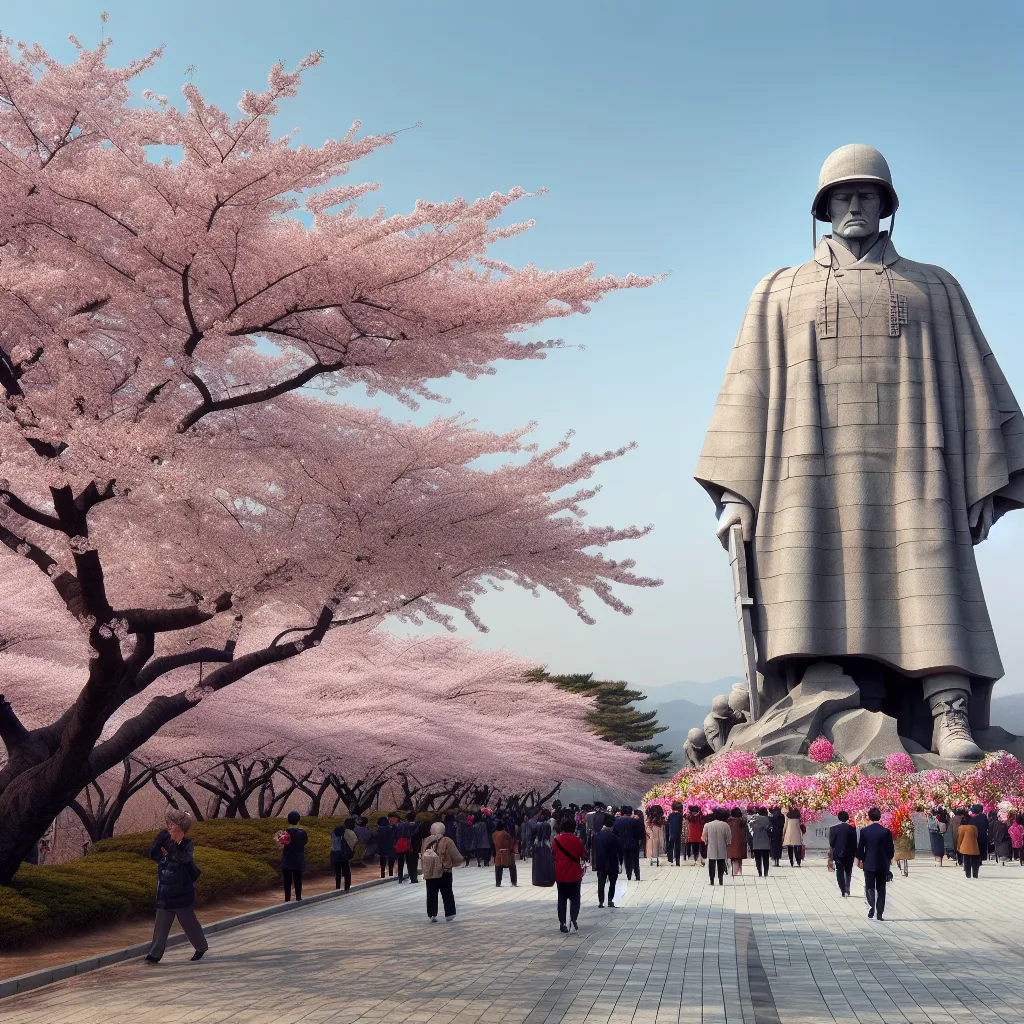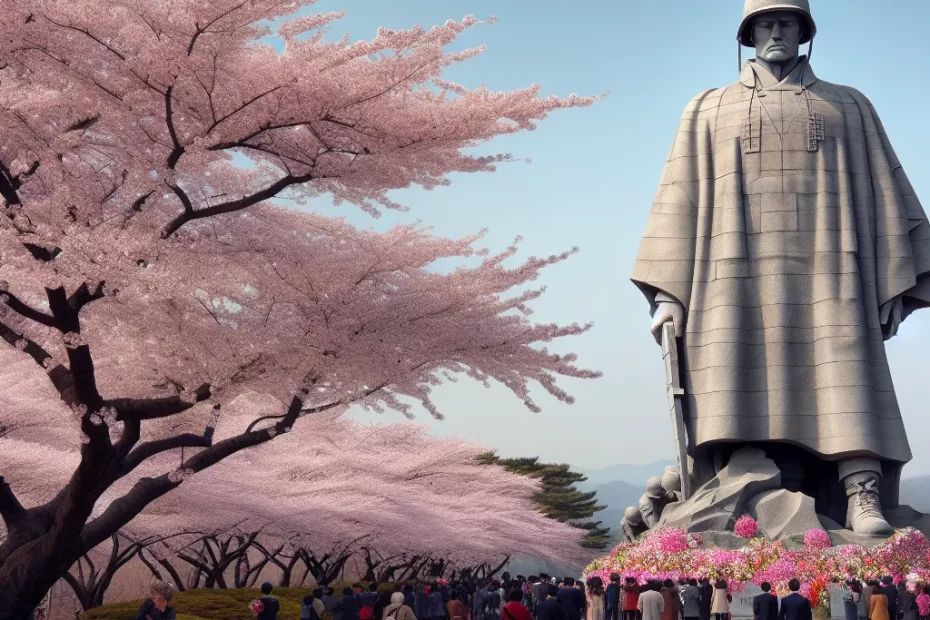As we reflect on the legacy of the Korean War, it is imperative to delve into the historical impact, resilience, and unity that emerged from this tumultuous period. The Korean War not only shaped the course of history but also tested the strength and fortitude of the Korean people. By examining the resilience displayed by individuals and communities during and after the conflict, we can truly appreciate the remarkable ability of the human spirit to endure and overcome adversity. Furthermore, the unity achieved post-Korean War stands as a testament to the unwavering determination of the Korean people to rebuild and forge a path towards peace and prosperity. It is essential to honor the heroes and survivors of this conflict, whose sacrifices and courage continue to inspire generations. In recognizing their contributions, we pay homage to the resilience and unity that have defined Korea’s journey towards progress and reconciliation.

Exploring the Historical Impact of the Korean War
The Korean War, which took place from 1950 to 1953, left a profound impact on the Korean Peninsula and the world at large. This conflict, often referred to as the “Forgotten War,” resulted in significant loss of life, with estimates of casualties ranging from 2.5 million to 5 million people. 🌏
The Division of Korea
One of the lasting legacies of the Korean War is the division of Korea into North and South along the 38th parallel. This division not only created a physical barrier between families and loved ones but also deepened ideological differences between the two Koreas. The Demilitarized Zone (DMZ) that now separates the two countries serves as a stark reminder of the ongoing tensions that persist on the peninsula. 🚧
Geopolitical Implications
Furthermore, the Korean War had far-reaching geopolitical implications, shaping the dynamics of the Cold War and influencing global politics. The involvement of major world powers such as the United States, China, and the Soviet Union transformed the conflict into a proxy war, with each side vying for influence in the region. The armistice signed in 1953 may have halted the fighting, but it did not bring about a formal peace treaty, leaving the Korean Peninsula technically still at war. ☮️
The Korean Peninsula Today
Despite the devastation caused by the war, South Korea emerged from the ashes and underwent a remarkable transformation. Through rapid industrialization and economic development, South Korea transitioned from a war-torn nation to a global economic powerhouse in just a few decades. This “Miracle on the Han River” stands as a testament to the resilience and determination of the Korean people. 🌟
On the other hand, North Korea’s isolationist policies and focus on military buildup have led to economic stagnation and international isolation. The stark contrast between the two Koreas serves as a constant reminder of the lingering effects of the Korean War and the challenges that still exist in achieving lasting peace and reunification. 🕊️
In conclusion, the Korean War continues to shape the Korean Peninsula and the world in profound ways. Its impact on geopolitics, society, and culture serves as a reminder of the enduring legacy of conflict. As we reflect on the historical significance of the Korean War, we must also look towards a future of peace and reconciliation for the Korean people and the global community. 🕊️
Examining the Resilience of the Korean People
In the aftermath of the Korean War, the resilience and unity of the Korean people have shone brightly, demonstrating their unwavering spirit in the face of adversity. The Korean War, which lasted from 1950 to 1953, left the Korean Peninsula devastated, with countless lives lost and families torn apart. However, out of the ashes of war emerged a nation determined to rebuild and thrive.
The Remarkable Economic Growth of South Korea
The resilience of the Korean people can be seen in the remarkable economic growth and development that South Korea has achieved in the decades since the war. From being one of the poorest countries in the world, South Korea has transformed into a global economic powerhouse, known for its technological innovations and vibrant culture. The Korean people’s resilience and hard work have been key drivers of this remarkable transformation.
The Strong Sense of National Identity and Unity
Moreover, the resilience of the Korean people is evident in their strong sense of national identity and unity. Despite the division of the Korean Peninsula into North and South, Koreans on both sides share a deep bond forged through a common history, language, and culture. This sense of unity has been a source of strength for the Korean people, enabling them to overcome challenges and strive for a better future together.
Adaptability to Rapid Changes and Challenges
The Korean people’s resilience is also reflected in their ability to adapt to rapid changes and challenges. In the face of geopolitical tensions, economic uncertainties, and natural disasters, Koreans have shown remarkable resilience and determination to overcome obstacles. This adaptability and perseverance have been instrumental in Korea’s continued growth and success on the global stage.
In conclusion, the legacy of the Korean War is not just one of destruction and division but also one of resilience, unity, and hope. The Korean people’s ability to rise above adversity, rebuild their nation, and strive for a better future is a testament to their strength and determination. As we honor the resilience of the Korean people, we are reminded of the power of unity and perseverance in overcoming even the greatest of challenges. Korea’s journey from war-torn devastation to prosperity serves as an inspiration to the world, showcasing the indomitable spirit of its people.
Analyzing the Unity Achieved Post-Korean War
In the aftermath of the Korean War, the Korean Peninsula was left devastated, families torn apart, and a nation in ruins. However, amidst the chaos and destruction, a remarkable story of resilience and unity emerged, shaping the future of both North and South Korea.
The war, which lasted from 1950 to 1953, resulted in the loss of millions of lives and left deep scars on the Korean people. Yet, despite the immense challenges they faced, the Koreans showed incredible strength and determination to rebuild their nation and move forward.
The Korean Demilitarized Zone (DMZ)
One of the most significant aspects of the unity achieved post-Korean War was the establishment of the Korean Demilitarized Zone (DMZ) in 1953. This buffer zone, stretching 250 kilometers across the peninsula, symbolizes the fragile peace that exists between North and South Korea. It serves as a constant reminder of the need for dialogue and cooperation to prevent another devastating conflict.
Shared Cultural Heritage
Another key factor in the unity achieved post-Korean War is the shared cultural heritage and history of the Korean people. Despite the political division, North and South Korea share a common language, traditions, and customs that bind them together. This cultural unity has helped bridge the gap between the two nations and foster a sense of shared identity.
Furthermore, the economic progress made by both North and South Korea in the decades following the war has contributed to a sense of unity and mutual benefit. South Korea, once a war-torn nation, has emerged as a global economic powerhouse, while North Korea has made strides in industrial development and infrastructure.
The recent diplomatic efforts between North and South Korea, such as the historic summits between Kim Jong-un and Moon Jae-in, have also played a crucial role in fostering unity and reconciliation. These meetings have paved the way for increased dialogue, cooperation, and the possibility of a peaceful resolution to the longstanding division on the Korean Peninsula.
In conclusion, the unity achieved post-Korean War is a testament to the resilience, strength, and determination of the Korean people. Despite the challenges and obstacles they have faced, the Koreans have shown that unity, peace, and reconciliation are possible. As we reflect on the legacy of the Korean War, let us honor the spirit of unity that continues to inspire hope for a peaceful and prosperous future on the Korean Peninsula. 🕊️🇰🇷
Honoring the Heroes and Survivors of the Conflict
In reflecting on the legacy of the Korean War, it is paramount to honor the heroes and survivors whose resilience and courage have left an indelible mark on the history of the Korean Peninsula. The Korean War, which lasted from 1950 to 1953, resulted in immense human suffering, with millions of lives lost and families torn apart. Despite the harrowing challenges they faced, the heroes who fought on the front lines and the survivors who endured the aftermath of the conflict demonstrated extraordinary strength and fortitude.
The “Forgotten War”
The Korean War, often referred to as the “Forgotten War,” was a brutal conflict that pitted the forces of North Korea, supported by China and the Soviet Union, against South Korea, supported by the United Nations, led by the United States. The war resulted in widespread devastation, with cities reduced to rubble and countless civilians caught in the crossfire. The heroes of this conflict, including soldiers from various countries who fought alongside the South Korean forces, displayed unwavering bravery in the face of overwhelming odds.
Resilience of the Survivors
The survivors of the Korean War, many of whom were children at the time, endured unimaginable hardships, including displacement, hunger, and loss of loved ones. The resilience and determination shown by these survivors in rebuilding their lives and communities in the aftermath of the war are a testament to the human spirit’s ability to overcome adversity.
It is essential to recognize the sacrifices made by the heroes and survivors of the Korean War and to ensure that their stories are not forgotten. By honoring their legacy, we pay tribute to their courage and resilience, and we reaffirm our commitment to peace and unity on the Korean Peninsula.
As we commemorate the heroes and survivors of the Korean War, let us remember their sacrifices and strive to build a future where peace and reconciliation prevail. Their legacy serves as a reminder of the importance of unity and solidarity in the face of adversity. Let us honor their memory and continue to work towards a peaceful and prosperous future for all Koreans.
In conclusion, the legacy of the Korean War is a testament to the resilience and unity of the Korean people. By honoring the heroes and survivors of the conflict, we pay tribute to their courage and sacrifices, and we commit to upholding their legacy of peace and reconciliation. Let us never forget the lessons of the past and strive to build a better future for the generations to come. 🌟🕊️
As we reflect on the legacy of the Korean War, it becomes evident that the resilience and unity displayed by the Korean people in the face of adversity have been truly remarkable. The historical impact of the war serves as a reminder of the sacrifices made and the challenges overcome. The strength and determination exhibited by the Korean people post-war have paved the way for a unified and prosperous future. It is essential to honor the heroes and survivors of the conflict, acknowledging their courage and fortitude. The Korean War stands as a testament to the enduring spirit of a nation that rose from the ashes, embodying the values of resilience, unity, and hope for a better tomorrow.
